
Design Thinktion
An introspeculative exercise to question the future(s) awaiting Design Fiction
For the third meeting of the Design Fiction Club at La Gaîté Lyrique (Paris), we invited a group of designers and those well-versed in Design Fiction to imagine the future of the approach. This session provided an opportunity to apply the reflective and critical stance unique to Design Fiction, uncovering its blind spots and tomorrow’s challenges.
During this highly participative session, we developed a set of custom tools, including a “speculation lens” game for ideation and a branching tree system to map participants’ contributions.
We sought to avoid simplistic or one-sided scenarios and instead to open a critical eye to possibilities that were both sceptical and hopeful. Will Design Fiction become Emancipatory? Mercantile? Manipulative? Rebellious? Omnipresent, or even obsolete? These potential trajectories were presented to future participants in the workshop, who could vote on which paths to explore further. Additional suggestions, such as Initiator, Activist, Political, and Revelatory Design Fiction, were also contributed.
To spark discussion, we highlighted the risk of deviation towards “Design Thinkification” – the appropriation of certain principles and pitfalls from the criticised Design Thinking approach into Design Fiction: the abandonment of long-term thinking and complex reasoning, design sprints devoid of even the slightest trace of design, the cult of innovation reduced to post-it format, and the futile obsession with operationalisation and impact.
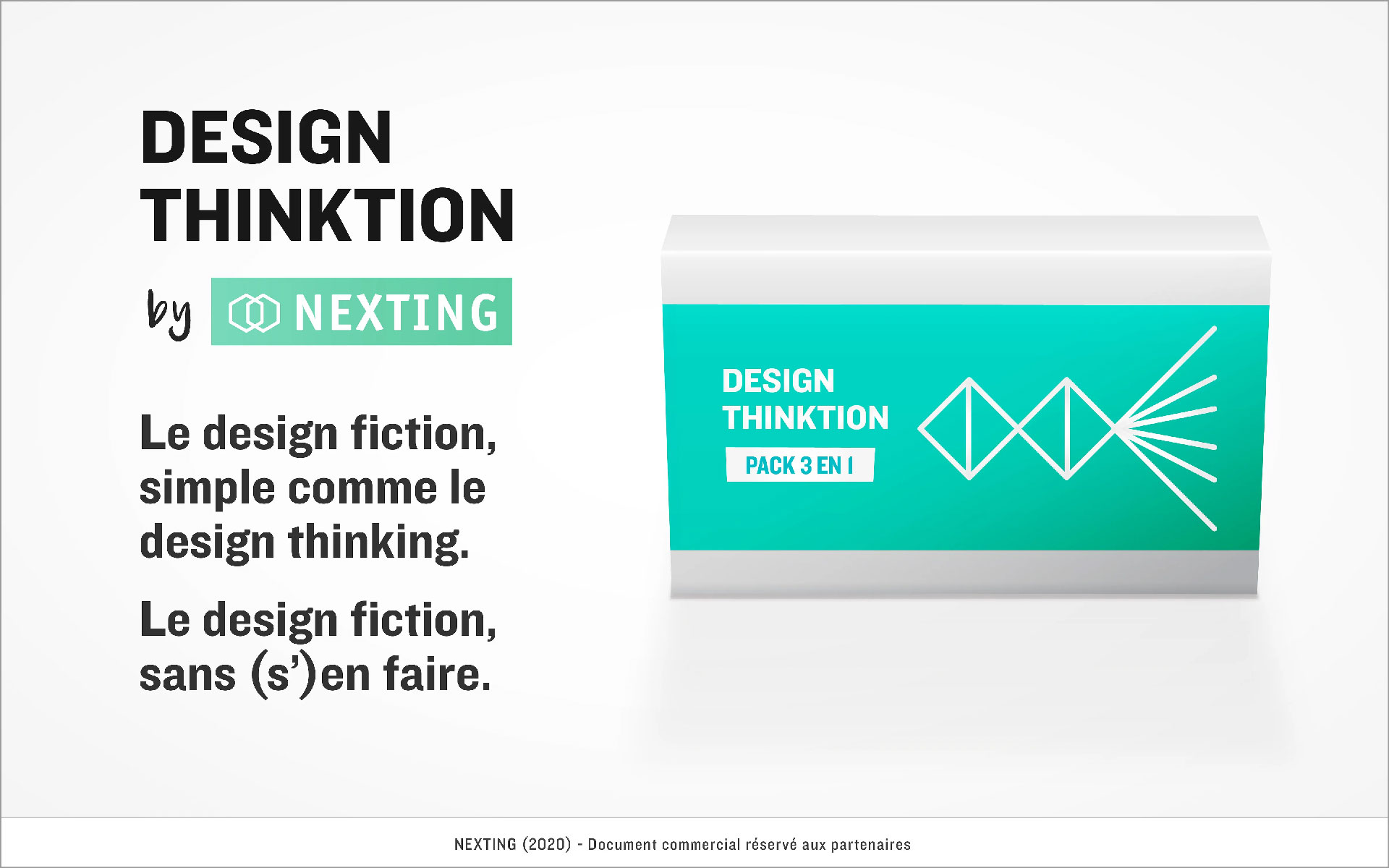
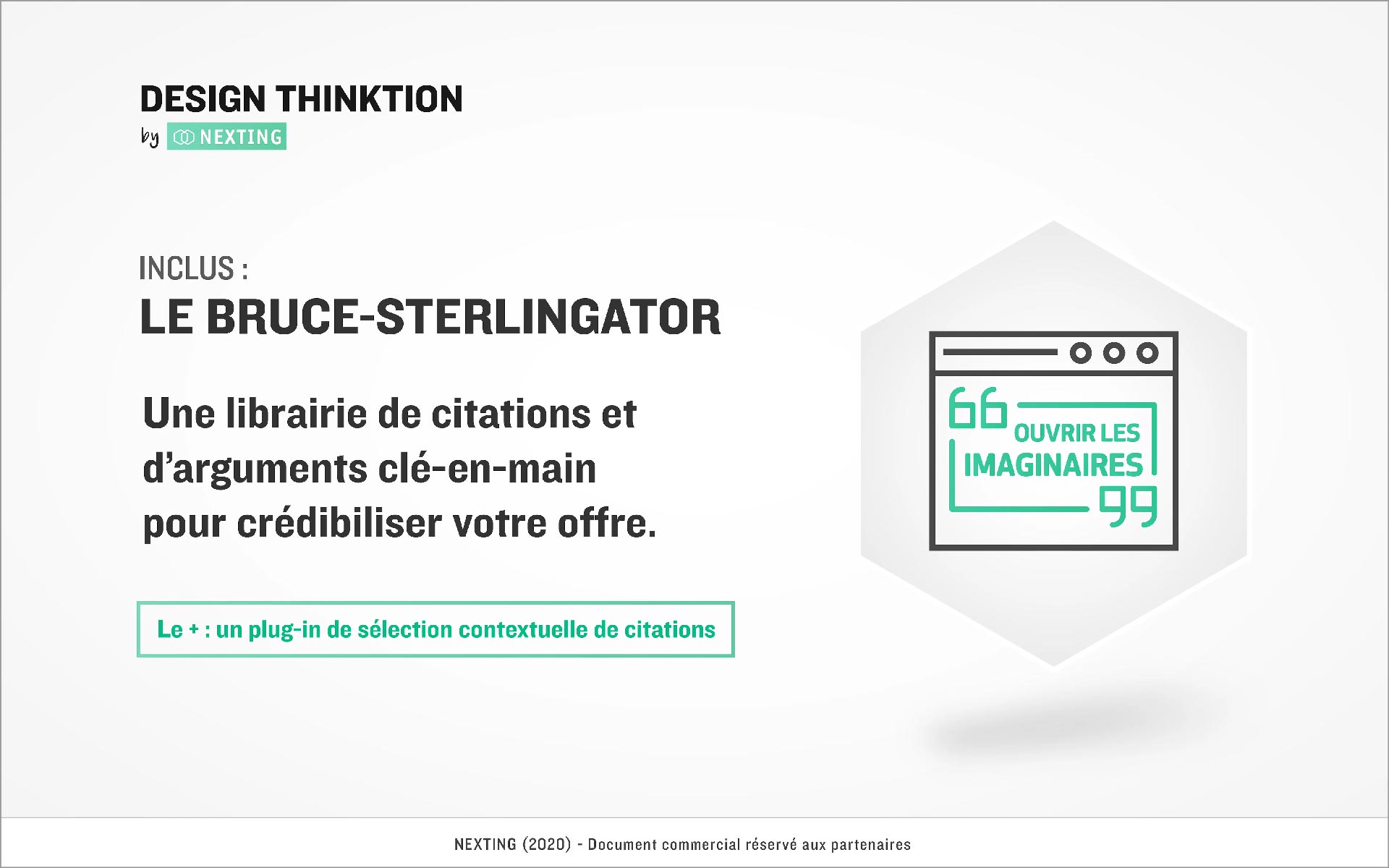
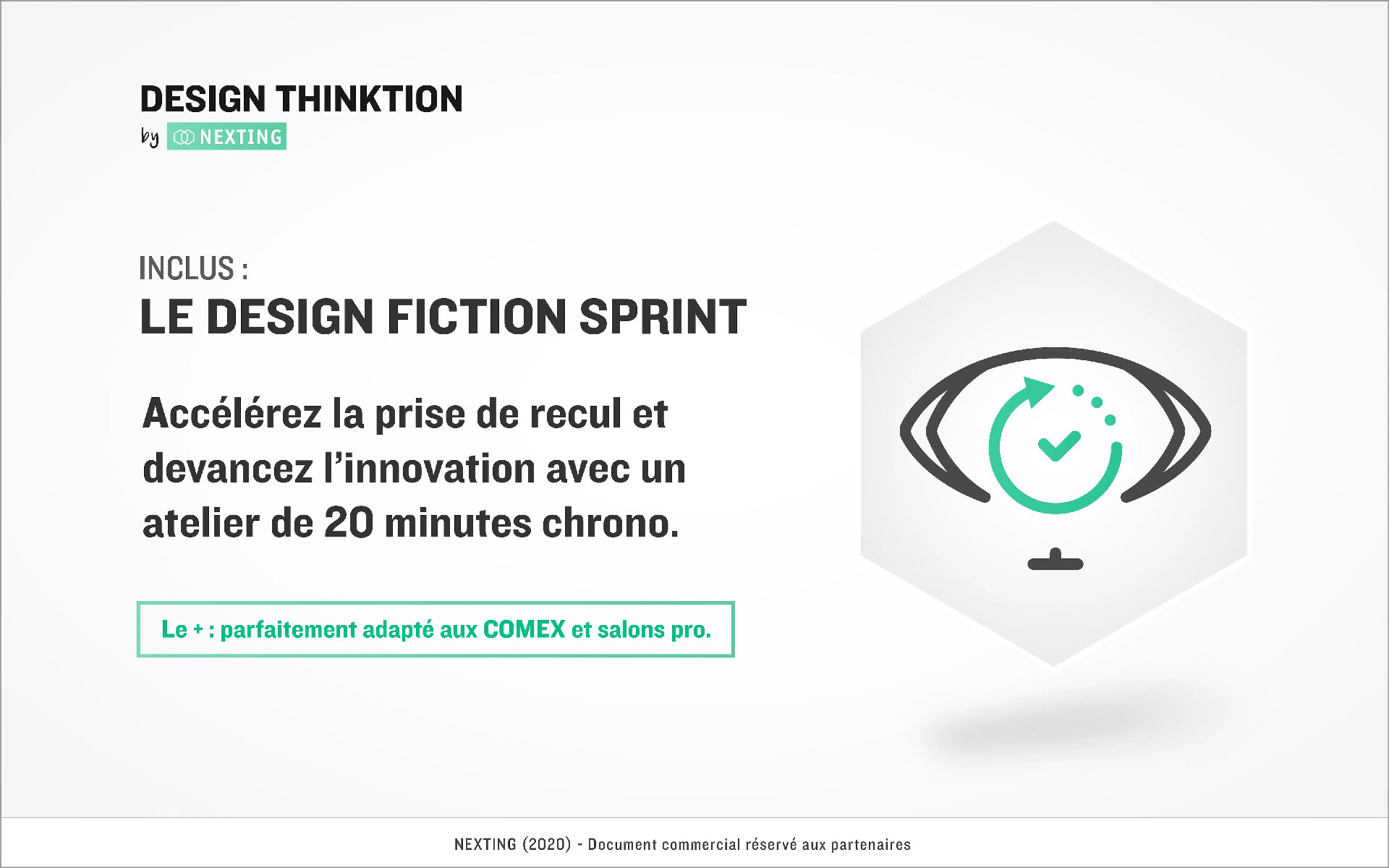
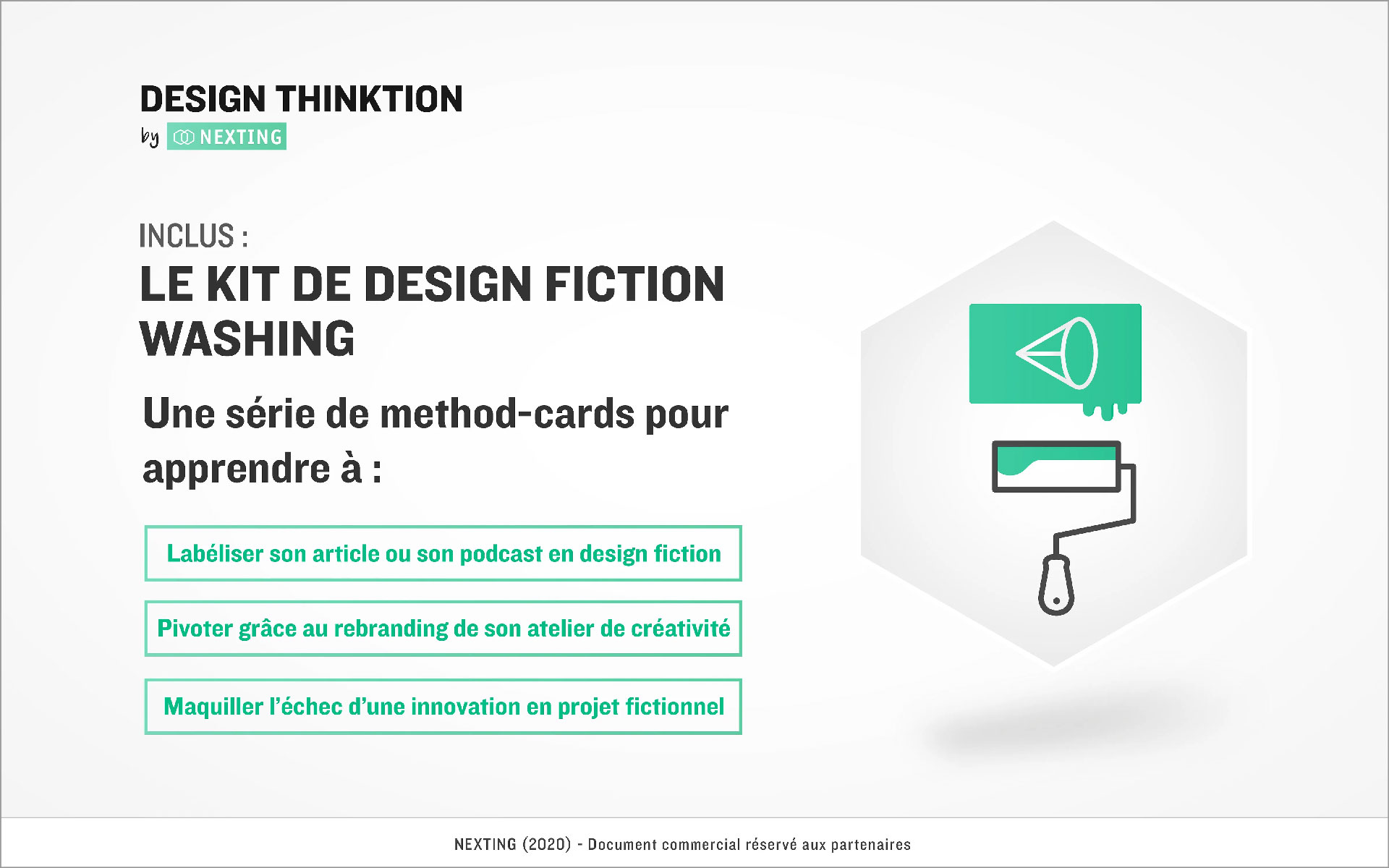
↑ The brochure from the (fictional) Nexting agency presents Design Thinktion, a dystopian variant of Design Fiction shaped by the darker aspects of Design Thinking.
In this dystopian scenario – intended as both catharsis and warning – Design Fiction has morphed into Design Thinktion, shaped by the influence of controversial Design Thinking. A mix of critique and satire, Design Thinktion presents a standardised, commercialised approach promoted by consulting agencies offering ready-made solutions to all issues.
This quasi-prophetic speculation underscores the risk of standardisation and dilution of Design Fiction, which could lead to a forgetting of its core tenets – such as stepping back from dominant trends and imaginaries, a certain form of sociotechnological critique, or the necessary prototyping of speculative artefacts – in favour of a tone-downed version of it. Rather than defending Design Fiction as a rigid institution, this workshop session highlighted key areas where practitioners can invest to elevate the approach.
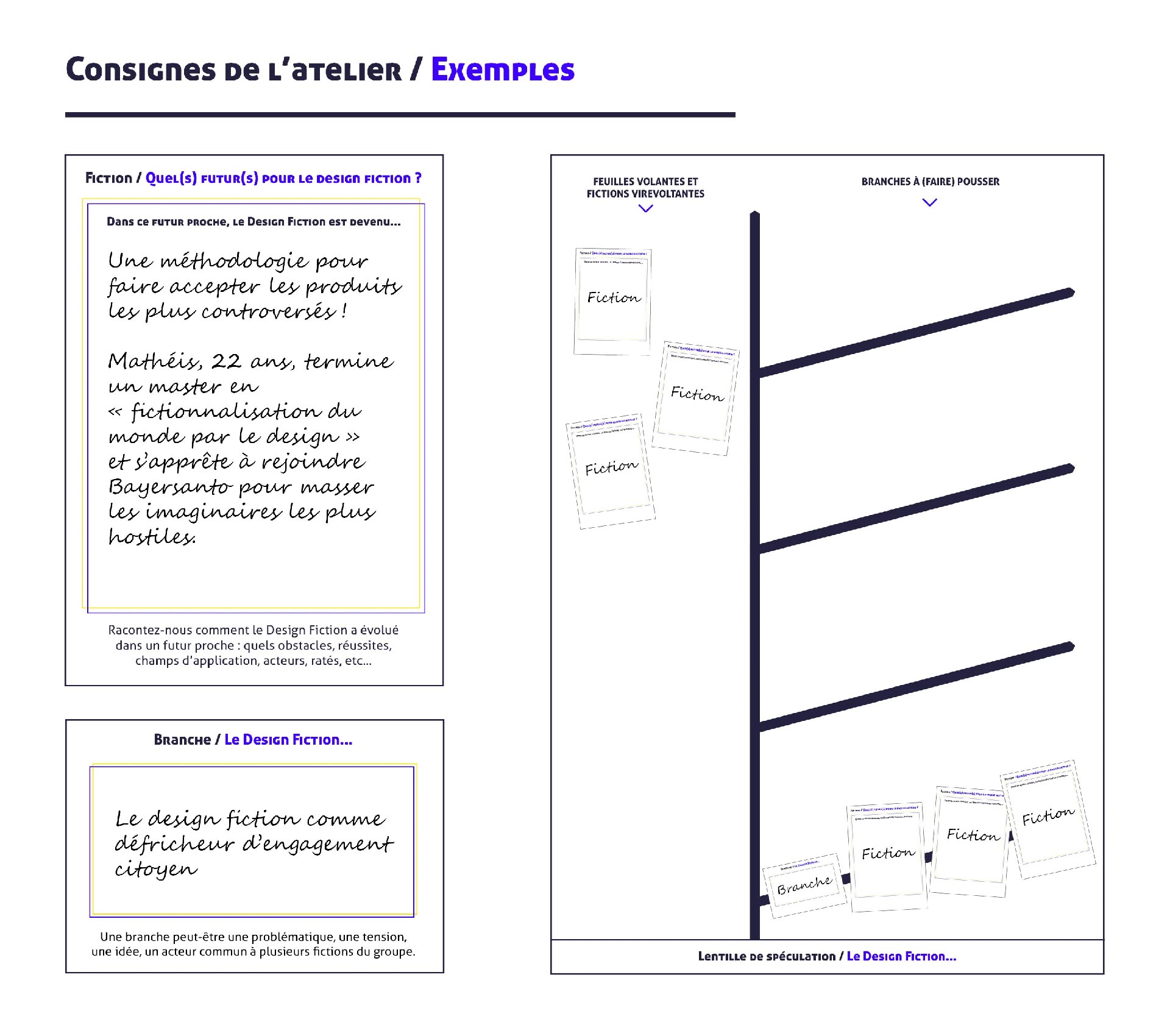
↑ Workshop materials allowed for iterative speculations on the future of Design Fiction.

↑ An overview of contributions from the workshop at the Design Fiction Club.
